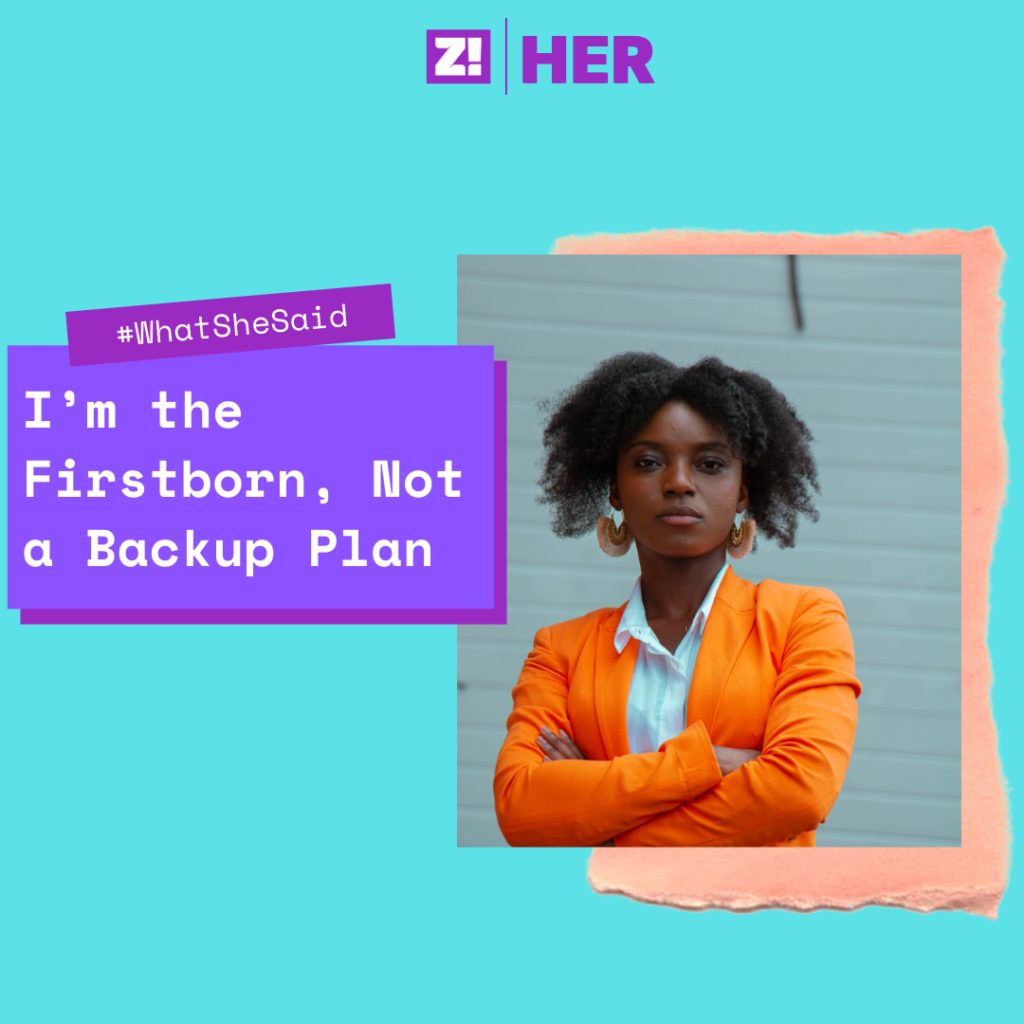Navigating life as a woman in the world today is interesting. From Nigeria to Timbuktu, it’ll amaze you how similar all our experiences are. Every Wednesday, women the world over will share their experiences on everything from sex to politics right here. This is Zikoko’s What She Said.

Today’s #ZikokoWhatSheSaid subject is Faith, a 19-year-old Nigerian woman. She talks about the medical error that motivated her to study medicine in Ukraine, being tired of the constant reminder to be grateful to her parents, and life since she moved back home because of the Russia-Ukraine war.
Are you one of those Nigerian firstborns who were forced to study medicine?
LOL. Not at all. My dad wanted me to be a civil engineer, and my mum, an accountant, but I always wanted to work in natural science. I knew I wanted to be a doctor when my sister ended up paralysed after a doctor overdosed on the prescription she needed. They also blamed it on the haemorrhage that happened in her coma, but it was their fault for not running an MRI after she came in for a bad fall.
My sister was a sickle cell patient that needed a lot more care than she got.
She wasn’t the first family member I’d seen affected by some form of medical negligence. It happened to an aunt, uncle and cousin. But when it happened to my sister, I wanted to fix it. Medicine has been my dream since I was 13.
Hence Ukraine, the motherland for Nigerian doctors?
That happened by chance. Initially, I wanted to study in the US, but I knew my parents couldn’t afford the fees. After my sister’s accident, they were spending a lot of money on her drugs. I didn’t want to add to the burden, and my parents kind of made me feel that way with their constant need to make me feel grateful.
You must wonder why I didn’t just attend a Nigerian school since my parents clearly didn’t have the money. But the Ukrainian university tuition was about the same as what I would’ve paid at Afe Babalola University, so why not take the chance to leave Nigeria? Studying at a public university didn’t make sense either because I’d probably spend ten years doing a six years course. I wasn’t up for that.
Fair assessment. But how did your parents make you feel the need to always be “grateful”?
That’s my firstborn origin story. They expected me to take up responsibilities I wasn’t ready to show gratitude for all the money they spent on me. When my sister got sick, it seemed like I became the backup plan for her and my brother’s welfare. I didn’t mind, but my parents wouldn’t let me hear the end of “my siblings were my responsibility”. They talked about how I’d sort my brother’s school fees when he was ready to join me in Europe.
It’s not like I didn’t want to take care of him. I just expected more time.
I’d been in Ukraine for three years when they were really pushing the conversation. I’d just started getting a hang of their system and barely understood the language. How was I supposed to earn enough money to support him? I don’t think they understood that I was in another man’s land, and it takes time to earn real money as a student.
Did you ever complain to anyone?
Yeah, my mum. But to her, I was just going through puberty and acting up. Because my parents were focused on earning more money, I was saddled with the responsibility of managing my mum’s store at 14. I’d close from school and spend the rest of the day there. They would always tell me how I’d have to think of how to expand the store. I’d also have to help when my sister needed anything. It was a lot.
One day, I lost it. I shouted at my mum about treating me like a backup plan. It felt like I was just being groomed to take care of the family when my parents died. No one ever asked what I wanted. My mum always says, “Make sure you marry a rich man who’ll be able to take care of your sister.” She doesn’t even know I never want to get married.
When I explained how I felt, her rebuttal was about how ungrateful I was. She listed everything they’d ever done for me. From being sent to a private school to having a roof over my head, I heard it all. That was the last time I talked about any of it. I just went along with their plans.
I’m really sorry. Did relocating help in any way?
Thanks. The only difference was choosing how much of what they said I wanted to listen to. The heart grows fonder when it’s far away. So yeah, we got along much better. Plus, I was 16 when I travelled. I still needed them financially even when we had arguments. At that point, I was to blame for allowing the firstborn title to haunt me, not them.
How?
I knew I’d have to pay my parents back someday. Nobody had sent my parents abroad, but they did that for me. As a first-generation migrant, you’re indebted for that for life. People expect you to graduate and carry the other generations on your shoulder. That thought made it hard to enjoy life in Ukraine.
Do you think being the firstborn took away your freedom to flex?
I’ve never had a chance to explore my social side, but I don’t think I can blame my parents for not consciously enjoying myself. My mates in medical school went out for parties; I’d choose to stay home. I didn’t think I was missing out though. I’ve always been introverted, spending more time indoors. Being far away from my family wasn’t going to shock me into becoming an outgoing person.
Since I moved back to Nigeria in March, I’ve only missed out on my peace of mind. I’ve never felt more overwhelmed than now.
Why?
I’m thankful I made it out, but I have no clue what I’m doing with my life right now. I was already in my fourth year of uni, and now, I’m not sure when I’ll actually graduate. It feels like when I was walking to the Polish borders when we were trying to get back to Nigeria from Ukraine. There was no certainty that I’d make it all the way, but I kept moving. Only with this phase back home, I’m not sure it’ll end soon.
I’m sorry.
Thank you. Beyond the uncertainty of school, I’m back to being hounded about creating generational wealth for my family. No one gave me room to relax and be taken care of. They’d typically say, “We need to start a new business for the family,” but I know they mean “I need to.”
We aren’t even making money from my mother’s store anymore. On top of that, my dad is angry with the way I silently carry myself around the house. These are people who experienced the brunt of military rule. I expected them to understand that I need time to process the possibility that my school may not resume anytime soon because of the Russian-Ukrainian, but of course, I only got the “You’re never grateful for anything we do” response. I still don’t understand why they felt so attacked by my sadness.
I’m guessing you’ve not spoken to them about this…
There’s no need. Paying back is the only way I know how to show gratitude as a firstborn. They always talk about everything they’ve ever done for me, so why not return the favour? But they want continuous thank yous, which gets tiring at some point.
Right now, I’m focused on setting up a business. Since we’ve always talked about some kind of generational wealth, I’ve decided to take my return to Nigeria as an opportunity to get started on that. First, I’m setting up a t-shirt business, and maybe, I’ll expand into affiliate marketing or tech.
What about medicine?
It’s my passion, but I have to make money first. I want to be less dependent on my parents. I turn 20 this year (2022), and I can’t keep complaining about feeling like I owe them and still ask them for everything.
Whenever I go back for my degree, I want to live a different life. Not one constantly plagued by being the firstborn.
If your sister’s accident didn’t happen, what would be different right now?
I think my family would be different. My parents were civil servants, and that one mistake continues to affect them financially. The pressure would take a mental toll on anyone, so I can’t blame them for the expectations. Some days, I just wish I wasn’t on the receiving end of their frustrations since that one mistake.
If you’d like to be our next subject on #WhatSheSaid , click here to tell us why



